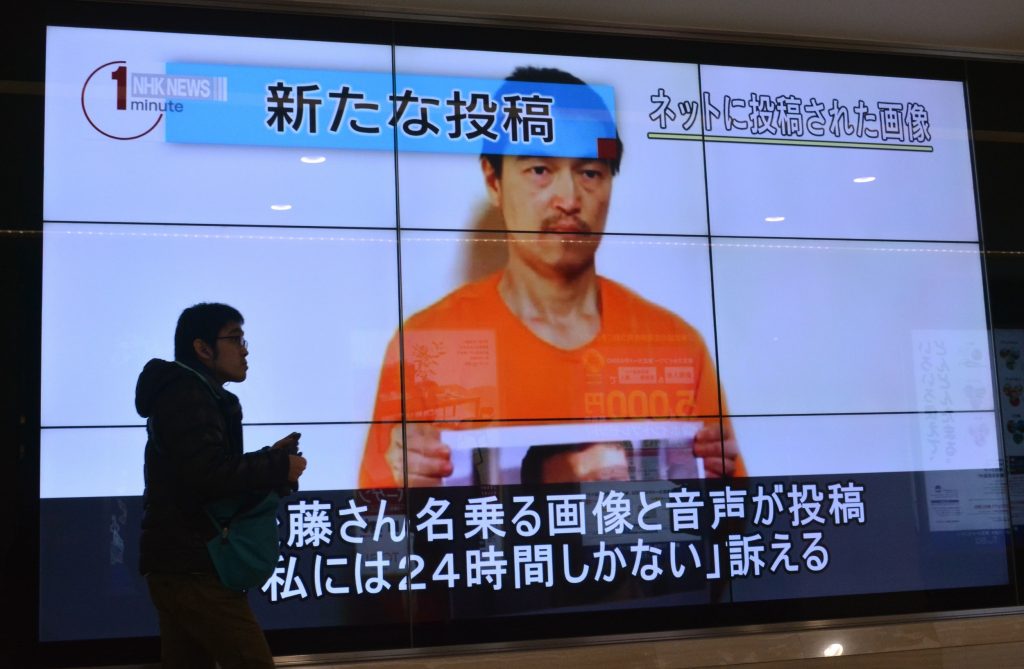
- ARAB NEWS
- 20 Apr 2024

Tarek Ali Ahmad, London
On Jan. 31, 2015, Japanese nationwide looked at their TV screens and mobile phones in horror at the news that one of their own, journalist Kenji Goto, had been beheaded by Daesh in Syria.
This defining moment brought the “war on terror” much closer to home, despite Japan being more than 8,500 km away from Syria.
The news shook Japan’s government, which has even considered changing the country’s post-World War II pacifist constitution to provide more support to the war against Daesh.
The constitution prevents Japan from pursuing combat-related deployments abroad. It is part of the US-led international coalition against Daesh, but has only provided humanitarian aid, not boots on the ground in Syria or Iraq.
After the beheading of Goto, Japan’s Prime Minister Shinzo Abe said his country “would not give in to terrorism.” Since then, he has been pushing for constitutional change.
What led to Goto’s fate?
Japan’s government warned Goto against going to Syria to try to secure the release of fellow national Haruna Yukawa, who was being held by Daesh.
Nonetheless, Goto traveled to Turkey, from where he entered war-torn Syria on Oct. 24, 2014.
Less than three months later, Daesh released a video of Goto and Yukawa and demanded $200 million from Japan’s government for their return.
On Jan. 24, 2015, Daesh released a photo of Goto holding an image of decapitated Yukawa, and an audiotape of Goto blaming his government for Yukawa’s death.
Daesh called for a prisoner swap: Goto for Sajida Al-Rishawi, who had participated in the 2005 Amman bombings.
One week later, after realizing that its demands were being met, Daesh released a video of the beheading of Goto in Raqqa, its de facto capital at the time.